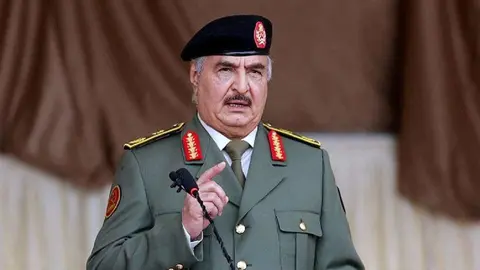Libya's parliament passes law paving the way for elections

Libya takes a key step towards political stability. Earlier this week, the House of Representatives unanimously approved the enactment of the law to elect the president of the state and the law to elect the National Assembly.
Both were drafted by the so-called Libyan Joint Committee 6+6, as announced by the Speaker of the Libyan House of Representatives, Abdullah Bilheg. The 6+6 Joint Committee had already announced last June the approval of two draft electoral laws, referring them to the House of Representatives and the House of State.
During the session, Aguila Saleh, Speaker of the Benghazi Parliament, noted that the approved laws "do not exclude anyone who is eligible to be a candidate, whether civilian or military". Saleh stressed that "whoever does not win the elections will return to his or her previous position".
However, according to Agencia Nova, it is not yet clear whether these laws will also be approved by the High Council of State, an institution with mainly consultative functions but indispensable for the most important decisions and appointments. Moreover, in the capital, Tripoli, they have denounced that the approval of the House of Representatives took place unilaterally and without prior coordination with the Senate in the western part of the country. As a result, there is a possibility that a new political division could emerge.

According to Libyan law, elections must be held within 240 days of the promulgation of the laws. One of the main issues to be resolved is the question of the future president's dual citizenship. In this regard, the High State Council in Tripoli is firmly against dual passports, while the House of Representatives is in favour.
As Agencia Nova reports, another problem relates to military ties. While for the Tripoli authorities presidential candidates should not come from the armed forces, for the parliament in the east of the country, a region controlled by Marshal Khalifa Haftar, leader of the Libyan National Army (LNA), this would not be a problem.

The UN envoy to Libya, Abdoulaye Bathily, has publicly stated on several occasions that everyone has the right to stand for election in Libya, including divisive figures such as Saif al-Islam Gaddafi - son of Libyan dictator Muammar - Marshal Haftar and Tripoli's Prime Minister Abdul Hamid Dabaiba.
On the other hand, there are also differences of opinion on the division of powers between the prime minister and the president, as well as on the imposition of Sharia law, the candidates' criminal records and possible pending charges.
Analysts have pointed to the need for both institutions to make concessions on some contentious points in order to hold elections, which is key to laying the foundations for much-needed stability in Libya.










